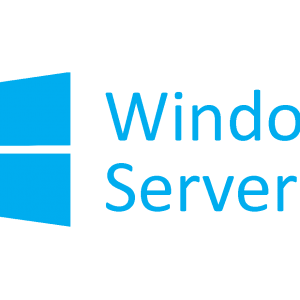Description
About this On Demand Course
The Microsoft on-demand product is an integrated on-line training experience that includes video, labs, exercises, text and knowledge checks. Attendees experience all of this through an on-demand course player.
What’s included?
- Access to the official Microsoft Video on Demand Course for 90 days from the point of first access, allowing you to start and stop when you need to.
- Lab access for 3 months from start of access.
- Digital edition of the Microsoft Official Curriculum (DMOC) manual for reference throughout your course. All DMOC come with fresh editions so your courseware will always be up to date.
- MCT Support via our Microsoft Training Support Yammer Group (you will be invited to the group after registration)
The content is based on the same official courseware we use in our instructor-led training, and videos feature engaging experts hand-selected by Microsoft. Unlike other on-demand offerings that offer simulated labs, MOC On-Demand gives you a live, real-time environment for hands-on training.
About this course
This course provides students who manage and maintain SQL Server databases with the knowledge and skills to performance tune and optimize their databases.
Audience profile
The primary audience for this course is individuals who administer and maintain SQL Server databases and are responsible for optimal performance of SQL Server instances that they manage. These individuals also write queries against data and need to ensure optimal execution performance of the workloads.
The secondary audiences for this course are individuals who develop applications that deliver content from SQL Server databases.
Prerequisites
In addition to their professional experience, students who attend this training should already have the following technical knowledge:
- Basic knowledge of the Microsoft Windows operating system and its core functionality.
- Working knowledge of database administration and maintenance
- Working knowledge of Transact-SQL.
At course completion
After completing this course, students will be able to:
- Describe the high level architectural overview of SQL Server and its various components.
- Describe the SQL Server execution model, waits and queues.
- Describe core I/O concepts, Storage Area Networks and performance testing.
- Describe architectural concepts and best practices related to data files for user databases and TempDB.
- Describe architectural concepts and best practices related to Concurrency, Transactions, Isolation Levels and Locking.
- Describe architectural concepts of the Optimizer and how to identify and fix query plan issues.
- Describe architectural concepts, troubleshooting scenarios and best practices related to Plan Cache.
- Describe architectural concepts, troubleshooting strategy and usage scenarios for Extended Events.
- Explain data collection strategy and techniques to analyze collected data.
- Understand techniques to identify and diagnose bottlenecks to improve overall performance.
Course Outline
Module 1: SQL Server Architecture, Scheduling, and Waits
This module covers high level architectural overview of SQL Server and its various components. It dives deep into SQL Server execution model, waits and queues.
Lessons
SQL Server Components and SQL OS
Windows Scheduling vs SQL Scheduling
Waits and Queues
Lab: SQL Server Architecture, Scheduling, and Waits
Module 2: SQL Server I/O
This module covers core I/O concepts, Storage Area Networks and performance testing. It focuses on SQL Server I/O operations and how to test storage performance.
Lessons
Core Concepts
Storage Solutions
I/O Setup and Testing
Lab: Testing Storage Performance
Module 3: Database Structures
This module covers Database Structures, Data File and TempDB Internals. It focuses on architectural concepts and best practices related to data files for user databases and TempDB.
Lessons
Database Structure Internals
Data File Internals
TempDB Internals
Lab: Database Structures
Module 4: SQL Server Memory
This module covers Windows and SQL Server Memory internals. It focuses on architectural concepts and best practices related to SQL Server Memory Configuration.
Lessons
Windows Memory
SQL Server Memory
In-Memory OLTP
Lab: SQL Server Memory
Module 5: SQL Server Concurrency
This module covers Transactions and Locking Internals. It focuses on architectural concepts and best practices related to Concurrency, Transactions, Isolation Levels and Locking.
Lessons
Concurrency and Transactions
Locking Internals
Lab: SQL Server Concurrency
Module 6: Statistics and Index Internals
This module covers Statistics and Index Internals. It focuses on architectural concepts and best practices related to Statistics and Indexes.
Lessons
Statistics Internals and Cardinality Estimation
Index Internals
Columnstore Indexes
Lab: Statistics and index Internals
Module 7: Query Execution and Query Plan Analysis
This module covers Query Execution and Query Plan Analysis. It focuses on architectural concepts of the Optimizer and how to identify and fix query plan issues.
Lessons
Query execution and optimizer internals
Query execution plans
Analyzing query execution plans
Lab: Query execution and query plan analysis
Module 8: Plan Caching and Recompilation
This module covers Plan Caching and Recompilation. It focuses on architectural concepts, troubleshooting scenarios and best practices related to Plan Cache.
Lessons
Plan cache internals
Troubleshooting plan cache issues
Query store
Lab: Plan caching and recompilation
Module 9: Extended Events
This module covers Extended Events. It focuses on architectural concepts, troubleshooting strategy and usage scenarios for Extended Events.
Lessons
Extended events core concepts
Working with extended events
Lab: Extended events
Module 10: Monitoring, Tracing, and Baselining
This module covers tools and techniques to monitor, trace and baseline SQL Server performance data. It focuses on data collection strategy and techniques to analyze collected data.
Lessons
Monitoring and tracing
Baselining and benchmarking
Lab: Monitoring, Tracing and Baselining




